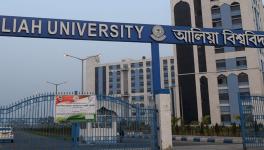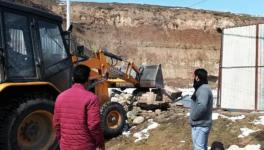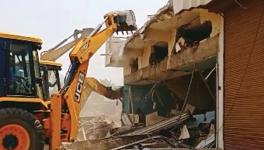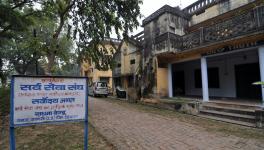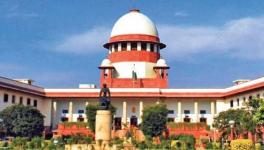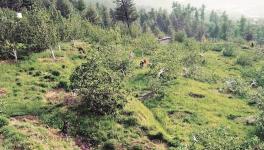J&K Admin Releases List of Influential Persons Who Got Land under Roshni Act
File Photo.
Srinagar: The Jammu and Kashmir administration has made public a list of influential beneficiaries of the Roshni Act, including politicians, businessmen and bureaucrats, a month after the high court termed the Act null and void.
The list includes the People’s Democratic Party leader and former finance minister of the erstwhile J&K state, Haseeb Drabu and his family members. The list remarks that his residential house in Srinagar is built on 1 kanal (5,445 sq ft) land designated as “banjar qadeem” (uncultivated land) that was approved under the Roshni scheme. His three family members also own equal shares of land in the same area registered under the scheme.
Amongst the other key influential names is KK Amla, a Congress party affiliate who along with his three relatives own as many as 14 kanals of land in Srinagar’s prime commercial locations on Residency Road and in Rajbagh areas. Leading hotelier Mushtaq Chaya owns nine kanals in Srinagar approved under the Act. The list also includes former bureaucrats Muhammad Shafi Pandit, his wife Nighat, and Tanveer Jahan who have registered land at Srinagar’s posh localities under the scheme.
The influential persons were allotted land under the Jammu and Kashmir State Land (Vesting of Ownership to the Occupants) Act, passed in 2001. The controversial act was referred to as the Roshni Act after the then government under Farooq Abdullah decided to regularise occupied or encroached land property in the region against compensation.
Through the compensation, the government expected to raise funds for financing the hydel-power projects and invest in the power sector--which is why it was called the “Roshni” scheme. The funds to be raised were estimated over Rs 25,000 crores by selling 20,64,972 kanals (2,58,122 acres) of state land under unauthorised occupancy. But, a 2014 report by the Comptroller and Auditor General (CAG) found that just Rs 76 crore had been realised against a demand of Rs 317 crore by the end of March 2013 in the transfer of 3,48,160 kanals of land in the region.
The J&K High Court has since declared the Roshni Act as “illegal, unconstitutional and unsustainable,” following which a probe by the Central Bureau of Investigation (CBI) was ordered. The law enforcement agency registered four cases in the matter.
The Divisional Commissioner office of Jammu and Kashmir has prepared the list of all the beneficiaries of the Roshni scheme and is expected to make it public after the first list of influential persons. The J&K administration is planning to recover thousands of kanals of state land which they claim to have been “illegally occupied” by many in the region.
Some of the ownerships, however, date back to several decades, especially in Srinagar. Many of these properties, including those at prime locations in Srinagar and Jammu, have been sold or leased. With the scrapping of the act, many of the owners’ rights hang in uncertainty.
Get the latest reports & analysis with people's perspective on Protests, movements & deep analytical videos, discussions of the current affairs in your Telegram app. Subscribe to NewsClick's Telegram channel & get Real-Time updates on stories, as they get published on our website.









